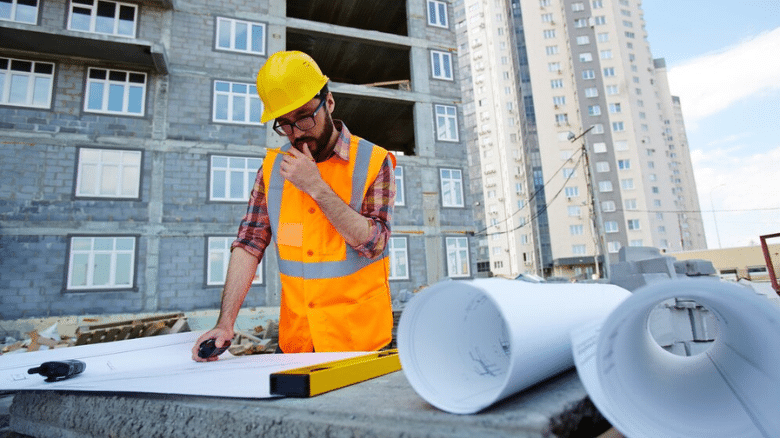Optimizing construction site productivity involves various strategies and practices designed to enhance efficiency, reduce delays, and ensure successful project completion. Below is a comprehensive guide on how to achieve these goals.
1. Effective Planning and Scheduling:
1.Detailed Project Planning:
Creating a detailed project plan is fundamental to optimizing productivity. This plan should outline each phase of the construction process, including timelines, resource allocation, and task dependencies. Use project management software to create and monitor schedules, ensuring that all team members are aware of their responsibilities and deadlines.
2.Realistic Scheduling:
Develop a realistic schedule that takes into account potential delays and disruptions. Buffer times should be included to accommodate unexpected issues such as weather conditions, supply chain disruptions, or labor shortages. Gantt charts and Critical Path Method (CPM) can be useful tools for visualizing and managing project timelines.
2. Resource Management:
1.Skilled Workforce:
Hiring a skilled and experienced workforce is crucial for maintaining high productivity levels. Invest in training programs to ensure that all workers are proficient in the latest construction techniques and safety protocols. Regular performance reviews and feedback sessions can help identify areas for improvement.
2.Equipment and Materials:
Ensure that all equipment and materials are of high quality and readily available. Regular maintenance of machinery and tools can prevent breakdowns and delays. Implement an efficient inventory management system to keep track of materials and avoid shortages or overstocking.
3. Technology Integration:
1.Construction Management Software:
Utilize construction management software to streamline communication, document management, and task coordination. These platforms can provide real-time updates and analytics, helping project managers make informed decisions quickly.
2.Building Information Modeling (BIM):
BIM is a powerful tool that allows for the creation of digital representations of the physical and functional characteristics of a project. It facilitates better collaboration among stakeholders, reduces errors, and enhances project visualization.
4. Communication and Collaboration:
1.Clear Communication Channels:
Establish clear and open communication channels among all stakeholders, including project managers, contractors, suppliers, and clients. Regular meetings and updates ensure that everyone is on the same page and can address issues promptly.
2.Collaborative Environment:
Promote a collaborative environment where team members feel valued and encouraged to share their ideas and concerns. This can lead to innovative solutions and a more cohesive team dynamic.
5. Lean Construction Practices:
1.Lean Principles:
Adopt lean construction principles to minimize waste and maximize value. This includes continuous improvement, just-in-time delivery, and value stream mapping. Identifying and eliminating non-value-adding activities can significantly enhance productivity.
2.5S Methodology:
Implement the 5S methodology (Sort, Set in order, Shine, Standardize, Sustain) to organize the construction site. A well-organized site reduces the time spent searching for tools and materials, thereby increasing efficiency.
6. Safety Management:
1.Safety Training:
Regular safety training sessions are essential to ensure that all workers are aware of the latest safety protocols and procedures. A safe work environment reduces the likelihood of accidents, which can cause significant delays and productivity losses.
2.Safety Inspections:
Conduct regular safety inspections to identify and address potential hazards. Use safety management software to document and track inspection findings and corrective actions.
7. Performance Monitoring:
1.Key Performance Indicators (KPIs):
Establish KPIs to measure productivity and performance. Common KPIs in construction include schedule adherence, cost variance, labor productivity, and quality metrics. Regularly review these KPIs to identify trends and areas for improvement.
2.Continuous Improvement:
Encourage a culture of continuous improvement where feedback is actively sought and used to enhance processes. Conduct post-project reviews to analyze what went well and what could be improved for future projects.
8. Environmental Considerations:
1.Sustainable Practices:
Implement sustainable construction practices to reduce environmental impact and improve efficiency. This includes using eco-friendly materials, recycling waste, and optimizing energy use on-site.
2.Regulatory Compliance:
Ensure compliance with all relevant environmental regulations and standards. This not only avoids legal issues but also enhances the project's reputation and sustainability credentials.
9. Financial Management:
1.Budget Management:
Maintain strict budget controls to prevent cost overruns. Use financial management software to track expenses and compare them against the budget in real-time. Regular financial audits can help identify discrepancies and areas for cost-saving.
2.Cost-Benefit Analysis:
Perform cost-benefit analyses for major decisions to ensure that they provide value for money. This includes evaluating the long-term benefits of investing in new technologies or training programs against their upfront costs.
Conclusion:
Optimizing construction site productivity requires a multifaceted approach that encompasses effective planning, resource management, technology integration, communication, lean practices, safety management, performance monitoring, environmental considerations, and financial management. By implementing these strategies, construction projects can achieve higher efficiency, reduced delays, and successful completion within budget and on time.
Build on Infra known as the best constructions in Hyderabad ensures durability, efficiency, and innovation. Hyderabad, known for its rapid development, offers top-notch construction services that integrate modern technology and sustainable practices. Utilizing these resources can significantly enhance infrastructure projects, providing robust foundations and advanced facilities. Whether for residential, commercial, or public projects, leveraging Hyderabad's leading construction expertise guarantees superior quality and long-term value.

